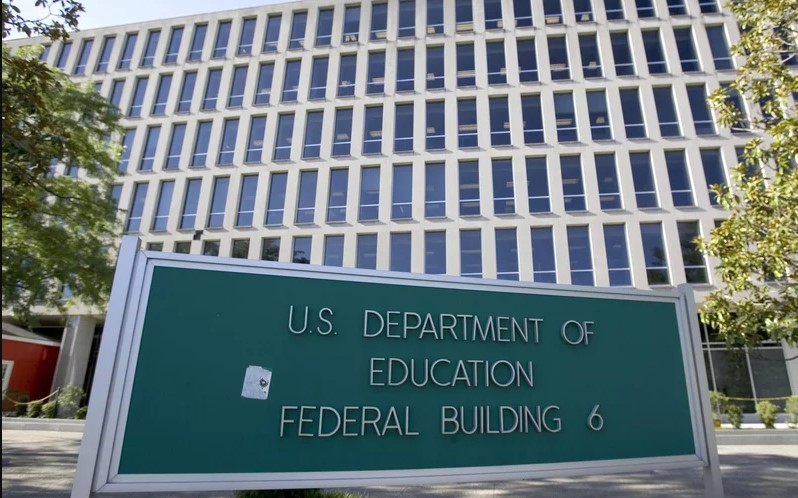The Biden administration is highlighting its efforts to alleviate the financial burdens faced by students, particularly through initiatives like the cessation of origination fees on student loans.
According to a statement released by the Biden administration on Friday, these “reforms would save students and borrowers billions in unnecessary fees and improve the college and loan repayment experience.”
Despite most private lenders discontinuing student loan origination fees, the federal government still imposes them. Federal student loan borrowers can encounter expenses ranging from 1% to 4% of their total borrowing amount. President Joe Biden’s 2025 budget, unveiled earlier this week, proposes ending these fees.
The White House characterizes these expenses as “junk fees,” defined as “hidden costs or surprise fees that companies and institutions include on customer or student bills, increasing their costs.”

Consumer advocates have lauded Biden’s initiatives. Betsy Mayotte, president of The Institute of Student Loan Advisors, a nonprofit, remarked, “By eliminating origination fees on federal student loans, borrowers should be able to borrow less to cover their costs.”
Approximately 7 million undergraduate, graduate, and parent-student loan borrowers currently pay origination fees, described by the White House as “nothing more than a tax imposed on students by the government, costing consumers more than $1 billion annually.”
As per Friday’s statement from the White House, a typical teacher or nurse pursuing federal loans for undergraduate and graduate degrees would pay $1,000 or more over the life of their loan due to these fees. Additionally, parents often face greater financial strain, with the average parent borrower paying out an additional $2,800 or more.
Mark Kantrowitz, a higher education expert, noted that the elimination of these fees would necessitate an act of Congress. However, he pointed out, “There is bipartisan support for such a change.”
Elimination of College Bank Fees and Textbook Charges
The White House announced on Friday that the U.S. Department of Education is initiating negotiated rulemaking to address the “harmful fees” imposed on college accounts by certain banks.
As part of this effort, the department aims to prohibit financial institutions contracted with colleges from levying insufficient funds and closure fees.

According to the Consumer Financial Protection Bureau (CFPB), between 2021 and 2022, financial institutions garnered over $17.3 million in revenue from more than 650,000 student bank accounts.
These banks may impose overdraft fees as high as $36, along with other charges, despite many other financial institutions discontinuing such practices.
The CFPB found that account holders at historically Black colleges and universities (HBCUs) and Hispanic-serving institutions paid notably high fees on average.
Moreover, the Education Department seeks to put an end to automatic billing for textbooks, as stated by the White House.
The Biden administration remarked, “Competitive markets provide consumers choice and value, but automatic charges for textbooks and course materials leave students with little ability to meaningfully shop around for better prices or to utilize free and open-source textbooks.”
Additionally, the administration is contemplating requiring colleges to reimburse students for any unused financial aid funds designated for meal plans.